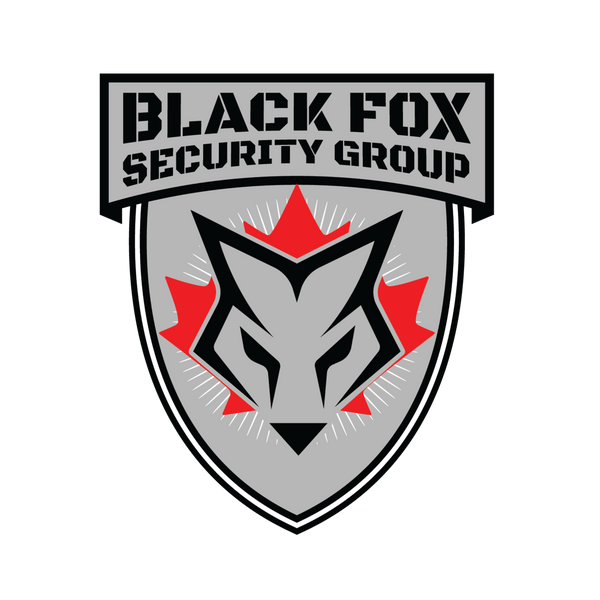In today’s world, security is more critical than ever before. Whether it’s at a corporate building, retail store, or public event, the presence of security guards is often the first line of defense against threats. However, the Ontario provincial licensing requirements, while necessary, are not always sufficient to ensure that security personnel are fully equipped to handle the complexities of modern security challenges. In this blog, we’ll explore why additional training beyond provincial licensing is crucial for delivering effective, professional security services.
Ontario’s Basic Security Licensing: A Good Start, but Not Enough
To become a licensed security guard in Ontario, candidates must complete a 40-hour training course, which covers basic topics such as:
- The role and responsibilities of a security guard
- Legal authority and limitations
- Emergency response procedures
- Professionalism and communication skills
While this foundational training provides a solid start, it’s important to recognize that the security landscape has evolved significantly. Security guards are often placed in situations that require more than a basic understanding of procedures and laws. De-escalation, advanced conflict resolution, and specialized knowledge (such as technology use and cybersecurity) are increasingly becoming essential skills. Unfortunately, the provincial license does not fully cover these areas.
The Need for Advanced Training
- Enhanced Conflict Management and De-escalation Skills
One of the most critical areas where additional training is needed is conflict management. Security guards regularly encounter tense situations, ranging from minor altercations to potentially dangerous confrontations. Being able to de-escalate a situation without resorting to physical force is a skill that can save lives and prevent legal issues.
Advanced de-escalation training teaches security guards how to recognize behavioral cues, maintain calm under pressure, and use communication strategies to defuse potential threats. These are not adequately addressed in the basic licensing program but are essential in high-stress environments such as bars, shopping malls, and hospitals.
- Technology Integration
The modern security landscape is also evolving with the integration of technology. Many security jobs now require guards to monitor CCTV systems, use body-worn cameras, and operate security software. Without proper training in these tools, guards may miss critical information or fail to provide the real-time responses needed in an emergency.
Advanced training ensures that security personnel are proficient in using these technologies and can integrate them seamlessly into their work. Whether it's managing digital access controls or utilizing surveillance technology effectively, this added knowledge is essential for a modern security team.
- Site-Specific Training
Different environments require different approaches. For example, securing a corporate office is vastly different from guarding a high-risk retail store or patrolling a residential complex. While the provincial license provides a general overview, it doesn’t account for the specific needs of each site.
Site-specific training prepares guards for the unique challenges they may face in different environments. Whether it’s learning how to handle large crowds, managing access control for VIP guests, or understanding the specific risks associated with a particular location, this extra level of training ensures guards are ready for any situation.
- Specialized Threats: Cybersecurity and Terrorism Awareness
As security threats become more complex, especially in the digital age, traditional training becomes insufficient. The rise of cybercrime and even potential terrorist activities means that security guards need to be aware of more than just physical security threats. Additional training can provide guards with the knowledge to recognize suspicious behavior and report early indicators of cyber threats or terrorist planning, contributing to overall safety.
- Cultural Awareness and Sensitivity
In Ontario’s diverse society, it’s crucial for security guards to understand and respect cultural differences. Basic licensing does not emphasize cultural sensitivity training, but this is essential in preventing misunderstandings that can escalate into conflicts. Enhanced training in this area helps guards communicate effectively with people from different backgrounds, fostering trust and ensuring that everyone is treated fairly and respectfully.
Why Businesses Should Invest in Additional Training
For businesses, hiring well-trained security guards is an investment in safety, customer service, and reputation. Guards who have received advanced training not only perform better in their roles but also provide a higher level of professionalism and customer care. This can lead to:
- Fewer incidents of violence or theft
- Faster, more efficient responses to emergencies
- Improved customer satisfaction
- Reduced legal risks associated with poor security practices
While Ontario’s provincial licensing lays the groundwork, investing in additional training for your security team ensures that they can handle the wide range of challenges they may encounter in the field.
The security industry is constantly evolving, and security guards need to be prepared for more than just basic tasks. While the Ontario provincial licensing provides a foundational level of knowledge, it falls short in equipping guards with the skills necessary to meet today’s complex security challenges. Businesses should prioritize advanced training in areas such as conflict de-escalation, technology integration, site-specific needs, and cultural sensitivity to ensure their security team is truly prepared to protect their assets and people.
By going beyond the bare minimum, you can guarantee that your security personnel are not just licensed but are truly capable professionals ready to safeguard your business in any situation.

